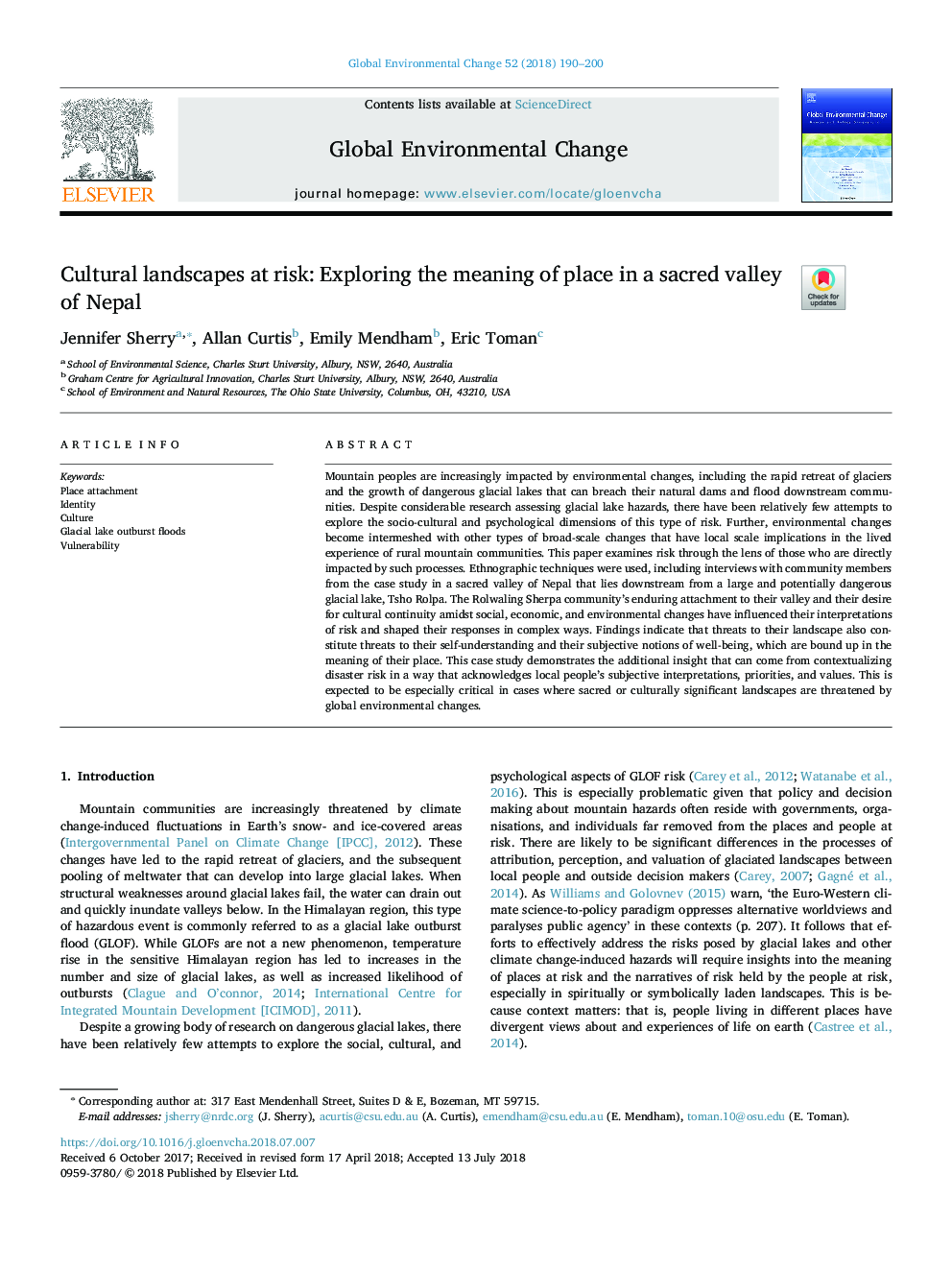| Article ID | Journal | Published Year | Pages | File Type |
|---|---|---|---|---|
| 7468714 | Global Environmental Change | 2018 | 11 Pages |
Abstract
Mountain peoples are increasingly impacted by environmental changes, including the rapid retreat of glaciers and the growth of dangerous glacial lakes that can breach their natural dams and flood downstream communities. Despite considerable research assessing glacial lake hazards, there have been relatively few attempts to explore the socio-cultural and psychological dimensions of this type of risk. Further, environmental changes become intermeshed with other types of broad-scale changes that have local scale implications in the lived experience of rural mountain communities. This paper examines risk through the lens of those who are directly impacted by such processes. Ethnographic techniques were used, including interviews with community members from the case study in a sacred valley of Nepal that lies downstream from a large and potentially dangerous glacial lake, Tsho Rolpa. The Rolwaling Sherpa community's enduring attachment to their valley and their desire for cultural continuity amidst social, economic, and environmental changes have influenced their interpretations of risk and shaped their responses in complex ways. Findings indicate that threats to their landscape also constitute threats to their self-understanding and their subjective notions of well-being, which are bound up in the meaning of their place. This case study demonstrates the additional insight that can come from contextualizing disaster risk in a way that acknowledges local people's subjective interpretations, priorities, and values. This is expected to be especially critical in cases where sacred or culturally significant landscapes are threatened by global environmental changes.
Related Topics
Life Sciences
Environmental Science
Environmental Science (General)
Authors
Jennifer Sherry, Allan Curtis, Emily Mendham, Eric Toman,
